
It’s not whether you get knocked down, it’s whether you get up.
-Vince Lombardi
2018 was a terrible, wonderful year.
2019 will be better in many ways and probably worse in others. Nonetheless, I’m ready to begin. Here we go!
Engage. Educate. Empower.

It’s not whether you get knocked down, it’s whether you get up.
-Vince Lombardi
2018 was a terrible, wonderful year.
2019 will be better in many ways and probably worse in others. Nonetheless, I’m ready to begin. Here we go!

Language is always changing, which can make it fun to play with yet also frustrating even stressful to keep up with when learning! Life has been a bit stressful for me recently with midterms, the poetry reading, changes in the house, and the general stress of making a living in Southern California. For this week’s blog, I thought I’d try to have some fun with language and explore some of the new combined words that have cropped up in English. These words are being used all over and have made it not only into the dictionary but even into the scramble book! I guess they are really here to stay.

So pull up a chair, grab a pen and paper, and enter into the crazy world of English where if we don’t have a word for a concept, we will take two related words, smash them together, and create something new and wonderful, or maybe awful, but useful nonetheless!




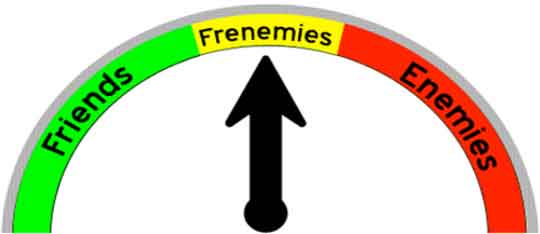
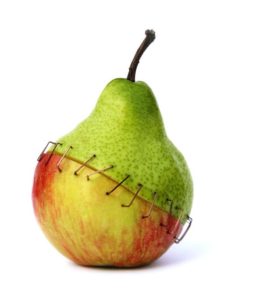



Once upon a time, I had a frenemy named Mel. It was a difficult relationship that caused me a ginanomous amount of grief. We worked together in the same office. She would bring me Frakenfoods and then get offended when I couldn’t eat them because of my many food allergies. She often made fun of what I couldn’t eat, making me feel self-conscious. Also, I’m not one much for travel partly because of my food issues. I prefer to spend a fantaboulous staycation in my own familiar environment doing things I love. For example, upcycling things helps me chillax after a hard day of work so for me a tatty pair of old bluejeans is a droolworthy find; Unfortunately, Mel thought second-hand goods were dirty and my interests were dull and she told me so on a regular basis. Her bad attitude was such a buzzkill to my self-esteem. We had such different priorities in life!
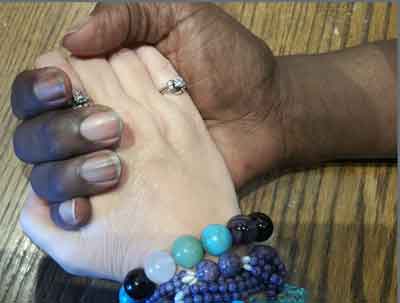
This is the third and last installation in my friendship blog series. I’ve greatly enjoyed examining the English language for ideas about connection and companionship over the past weeks. In my teaching life, I’ve been trying to actively engage in interpersonal relationships as a teaching strategy to facilitate learning. It has been both equally exhausting and exhilarating. Since May this year, I’ve gotten progressively out of the classroom and off of the computer to become more accessible to students on campus, in the cafe, and under the tree. I think that students do learn better when they have a personal connection to the instructor, at least at the level which I am teaching. Throughout this blog you will see many pictures of me with students and faculty at IVC to illustrate the language under consideration.
Of all the definitions of friend I have encountered, one of my favorites is “favored companion.” I believe that friendship need know no gender, ethnicity, religion, or language. Friendship can cross all boundaries. Friendship very well could be the basis on which equality, inclusion, acceptance, all the things I strive, for are built.
This song “I’ll Stand by You,” by The Pretenders is a beautiful anthem for friendship. It is my goal to be such a friend to others. This Youtube version includes the lyrics so that you can follow along.
[embedyt] https://www.youtube.com/watch?v=SuWAGT9ZkYE[/embedyt]


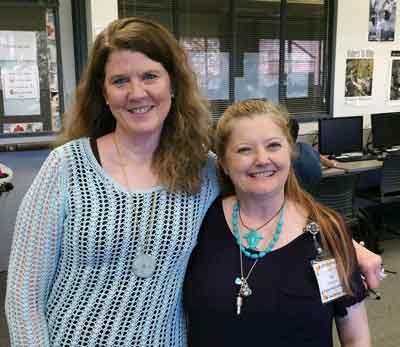

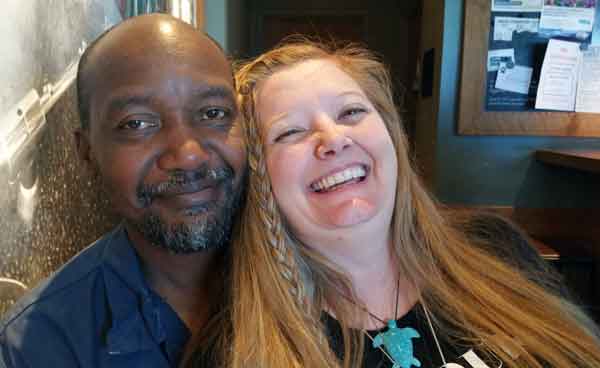
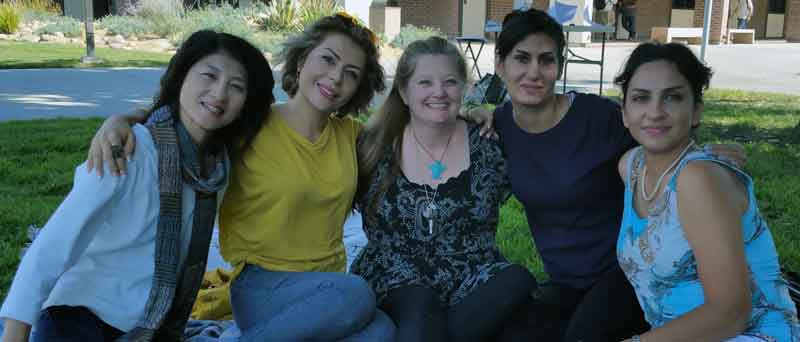
Being close knit is often used to refer to a family, but it can also be used for friends. When a sweater or blanket is woven or knight tightly it is hard to separate and lasts longer because it is stronger; similarly, people who are “knit” together tightly are bound together with ties of friendship based on common interests and have strong connections that stand the test of adversity and time.
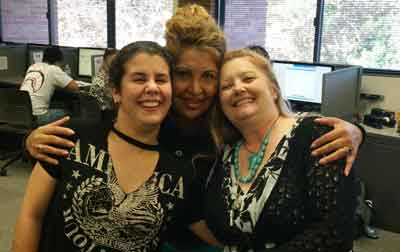
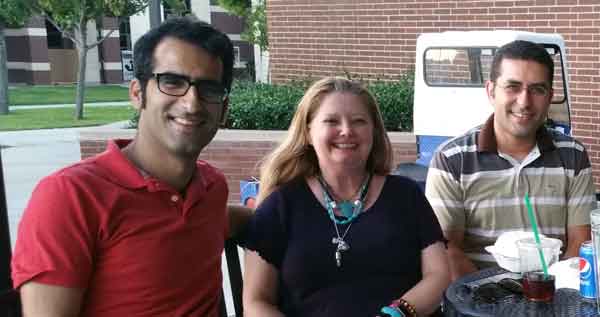
Being thick as thieves is a interesting idiomatic phrase; thieves aren’t generally trustworthy as they are breaking the law so they have to be careful to whom they share their confidential information. Thus, they only share with other thieves or friends involved in their criminal activity. This phrase then has come to be used for close friends with whom one feels comfortable sharing confidences or asking for advice. No criminal activity is actually required! (he he)

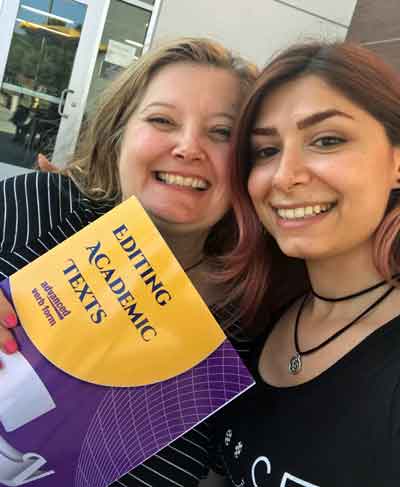
Being on the same wave length means to share the same perspective, to come at ideas from the same angle, or to see things in a similar same way. Often times this occurs with those from the same backgrounds, but it doesn’t have to. I find sometimes that people from wide and varied backgrounds are on my wavelength and people from my hometown are not. Sometimes we have to roam far from home to find others we resonate with; once we find those people, we should hold to them for all we are worth.
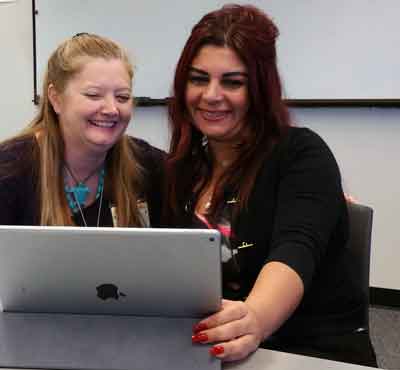
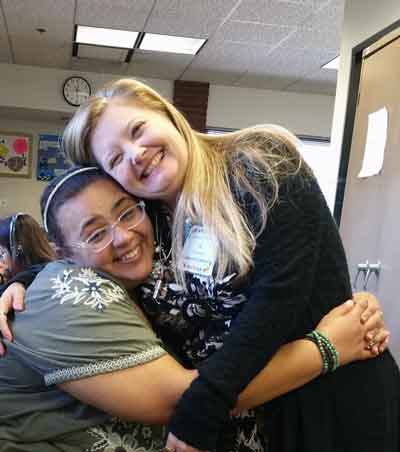
Best Friends Forever (BFF) is a relatively new phrase, originally used only by young girls to refer to one’s best friend who would be so, well, forever. However, it has become more commonly used today among woman of all ages to refer to extremely good friend. It is almost always used with the acronym BFF.
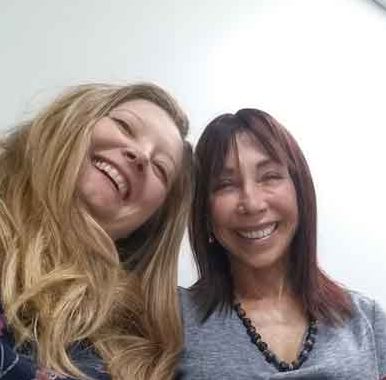
Friendship. It’s a sublime feature of life. It give us a place to laugh, to love, to play, to talk, to confide, to cry, to dream…
It might simply be one of the best things of being human.
We have so many words to describe friends and the relationships between people– idiomatic language to help us explore this aspect of communication. I encourage everyone to use these idioms in this and the last two blogs not only for your linguistic knowledge but for your personal experience too.
Get out there and make some friends.
It’s scary sometimes, sure. I know. You don’t know what’s going to happen. I know.
I sit under a tree every week. I come, I put blankets on the ground. And I wait. Every week I wonder. Will this be the week no one comes? Will this be the week I sit for an hour and a half alone under a tree? Every. Week.
To date, it hasn’t happened. It will. It has too. Sooner or later, I will sit under a tree alone. Nevertheless, I’m overcoming my own insecurities and need for control and letting things happens as they will. But for now, I’m making myself available every week by reaching out. I’m making friends. And you know what? It’s really amazing!
Mahatma Gandhi said, “We but mirror the world. .. If we could but change our ourselves, the tendencies in the world would also change.” People paraphrase this by saying be the change you want to see in the world.
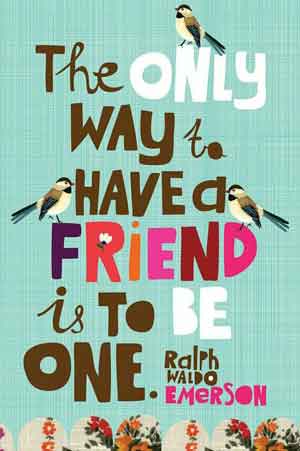

Humans have always sought friends. Thomas Aquinas, a philosopher and theologian, claimed, “There is nothing on this earth more to be prized than true friendship.” Wow, nothing? Wealth, possessions, fun, excitement, prestige, success — friendship is more important than all things? What is it about friendship that could make it so powerful in our lives?
According to the Roman philosopher Seneca, “One of the most beautiful qualities of true friendship is to understand and to be understood.” This aspect of friendship makes great sense to me. Like everyone else, I want to be known and accepted for all I am. Similarly, Jim Morrison, of the rock band The Doors, insisted that “a friend is someone who gives you total freedom to be yourself.” Just be yourself, we are told in popular culture, yet sometimes doing so is a scary proposition, but not with a friend who knows us, accepts us, and loves us. We are all looking for those bonds of friendship that help us navigate through this difficult life journey that we all travel on.
One of my favorite authors C.S. Lewis explained friendship as being “born at that moment when one man says to another: What! You too? I thought that no one but myself . . . ” When we realize the there is another being similar to us, in feelings, thoughts, experiences, values, beliefs, in some aspect of life we are no longer an island alone but connected to someone or if we are truly fortunate, even several someones.
I feel so lucky in my own life to have many people, from the most casual acquaintance to the deepest intimate connection, that I can call friend; I appreciate and am grateful for every relationship. My friends have shared my darkest moments and my most glorious victories.
Even a simple dinner with friends sharing conversation and laughter is a wondrous boon that should never be taken for granted.
This week, I’m sharing more language exploring the positive, beneficial aspects of friendship in both song and idiom.
[embedyt] https://www.youtube.com/watch?v=pC7JrE1s4rM[/embedyt]
The eyes are often considered the window to the soul that convey emotion, and in this case, the emotion would be sadness.
The all here can refer really to anything in one’s life, all the education, all the people, all the meaning, basically all the everything, often due to an encountered obstacle or difficulty.
While obviously feel small relates to size, it also means feeling a lack of quality or ability, a situation when you simply don’t feel good enough for the given task or situation.
To bear something means to handle it or accept it, so to be more than you can bear means to be more than you can handle at a given time; this often refers to handling things emotionally.
This phrase is related to one’s actual identity as opposed to what is shown to the world at large. Sometimes, we show our best to others, or some people even lie about who they are or what they believe or do. When the truth of their personality or actions is revealed, this is said to be the true colors.
Again, this phrase is rather obvious in that light shines through a window or the sun shines through the clouds for example, but in this situation, it is more like the true emotion or feeling is coming out through one’s actions or words.

Social circles, work circles, extracurricular circles- circles are areas of influence or areas in which we spend time or work. So moving in the same circle just means coming from the same experience, background, social level, or lifestyle as another person. Thus, a family with a lawyer father and doctor mother whose children attend private schools and play rugby on the weekends is in one social, financial, extracurricular circle while a family with a factory-worker father and stay-at-home mother whose children attend public school and work on the weekends is in another circle. These two families don’t move in the same circles.


To hit it off means that you immediately and effortlessly connect with a person or people. For example, when you meet someone and feel like you have known her forever and when you become instant friends, you two have hit it off.


If you think about schools of fish swimming as individuals yet together in a group as one, this idiom makes perfect sense. When you get along swimmingly with someone, you are of a like mind, working well together, and accomplishing things as a seamless team.


This is a fun idiom! When things are going well, and we have a lot of money and resources, we tend to overeat; hence, we can become thick or overweight. In contrast, during lean times with fewer resources and money, maybe we go a little hungry and eat a little less, becoming thin. To be friends through thick and thin is a clear visual representation of enjoying the great times and still being supportive through the bad ones. Such a great kind of friend to have!


The purpose of a bridge is to close a physical gap or distance; it can also provide a way across a difficulty like a river. When building bridges between people, the gaps may be easygoing seen too like physical or cultural differences, but they may also be more elusive like emotional or ideological. So if the point then of a bridge is to make a connection between two sides, the point of building bridges between people is to make connections despite differences. At the end of the day, despite our wide diversity, we are all humans together and should be able to make connections based on that if nothing else.

[embedyt] https://www.youtube.com/watch?v=jjNgn4r6SOA[/embedyt]
[embedyt] https://www.youtube.com/watch?v=lxNXtjGY_Us[/embedyt]
One of my favorites movies is It’s a Wonderful Life. In this movie, Clarence the angel reminds George the main character that “no man is a failure who has friends.” Here’s a brief clip, but the entire movie is worth a watch if you’ve never seen it!
I’ve failed at many endeavors in my own life; nonetheless, I can be assured that at least in my relationships, because of my many varied friendships, my life has been and will continue to be a success!
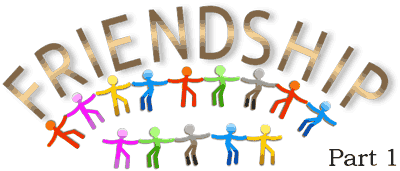
Friendship is a wonderful thing. It can be as fragile as a spider’s web at times and stronger than steel at others. I am blessed to have friends from all walks of life, and I actively and diligently work to maintain these friendships. Of all the questions I receive on a regular basis as a language instructor, the most commonly repetitive ones are about friends, finding them, making them, talking to them, keeping them… everyone wants friends.
Let’s begin with a classic song of friendship, “Lean on Me.” While it is very understandable, there are some idiomatic phrases within. Give it a listen if you like before you review the phrases or review and then listen.
For example, I can LEAN ON my friend and Word Press classmate Ehsan for help because he has more computer knowledge than I and trying to effectively use Photo Shop is driving me crazy.
Swallow your pride – This idiomatic phrase means to accept that something possibly embarrassing or awkward is going to happen, get over it, and ask for help with it. It is often used when someone must ask for help with something because we don’t always like to admit we need help in our lives.
For example, when I don’t know the answer to a student’s question in my ESL 201, I can reach out to my friend and S.I. Eric, who is currently in graduate school so actively studying linguistic areas I may have forgotten, and ask him to give me the answer. Even though I am the instructor, I can’t know every grammar bit in the world, but I do have to be willing to SWALLOW MY PRIDE and ask for help.
Need a hand – This idiomatic phrase does not necessarily refer to a hand per se; needing a hand simply means needing help with something, anything.
For example, on Tuesdays, when I am teaching and also have Under the Tree with Mrs. C at IVC, I have my class bag on wheels, my bag of blankets, my coffee (7 am class!), my water jug (5 hours of teaching!), my lunch (girl’s gotta eat) and more … opening to the door to the building can be a challenge on these days! Apparently I look like I NEED A HAND because total strangers are super friendly and reach out to help me! Whew! I need all the help I can get!
Understanding a problem – Generally, understanding others occurs when we either have experienced some similar situation or we have empathy for that situation.
For example, when my friend Marwa is having difficulties raising her two teenage boys (who wouldn’t!), I can UNDERSTAND THE PROBLEM even though I am not a parent myself. I have, in fact, taught many a teenager, so I can relate a little to her dilemma and listen and care even though we don’t share the same experiences. Empathy and understanding is required in friendship!
Carry on – This phrase means to keep moving forward in life and not giving up. There’s actually an popular modern song by Fun. titled “Carry On.” It is full of awesome idioms and friendship ideas too.
Share your load – This is similar to share your burden or share the weight of something. This idea was examined by T.A. Webb in Let’s Hear It for the Boy, when he wrote, “A burden shared is burden halved.” Both ideas are the same. If more than one person is carrying a weight, it is not as heavy as carrying it alone.
For example, my friend Long has to BEAR THE BURDEN of having a sick child. She is a wonderful mother and her daughter a beautiful bright young woman who suffers. It is a difficult situation. I can’t heal her daughter or change the situation but I do try to SHARE HER LOAD by being motivating and supporting, listening and providing a shoulder to cry on, UNDERSTAND THE PROBLEM and letting her LEAN ON ME when she needs to. This is an aspect of friendship.
In the eternal search for friendship, we are always talking about it in the language. Thus, we have many idiomatic ways to express aspects of friendship.

Catherine and Sheida see eye to eye on so many aspects of language and life! It’s no wonder they get along so well!
This phrase simply means agree with someone; you don’t actually have to be friends to see eye to eye even strangers can do so!
Nonetheless, one of the characteristics of friendship is common bonds, and seeing things the same way, sharing the same values and ideas, and enjoying the same activities certainly helps solidify those links!
Another way to express this is to have a shoulder or even need a shoulder to cry on. The idea behind this phrase is when we are upset and being held by someone who cares for us, we are crying on their shoulders.
You don’t have to be a best friend to listen sympathetically to others and let them express concerns and fears. Anyone can provide a shoulder to cry on.

Beth was upset with her Essay 1 grade; she hadn’t spent the time necessary because of her other classes and job last week. When she came to my office hour to talk about it, I was able to provide a shoulder for her to cry on about her life and difficulties.
This phrase doesn’t have to mean the actual language itself like Chinese or Farsi. The language here can be a metaphorical one like the language of writing teachers, graphic designers, computer engineers, or musical artists. It can refer to socio-economic class, culture, or gender. Language is more than words.
This is why my students can understand me even when their English is developing. Communication, and speaking the same language, does not solely depend on words.

Japanese Student: You should come to talk with Mrs. C under the Tree. It’s so awesome. We speak the same language, you know?
Korean Student: Mrs. C speaks Japanese? I didn’t know that!
Japanese Student: No silly, not Japanese. We speak the language of learning, of knowledge, of caring, of concern, of friendship…
Korean Student: Yes, I can see that. We do speak the same language!
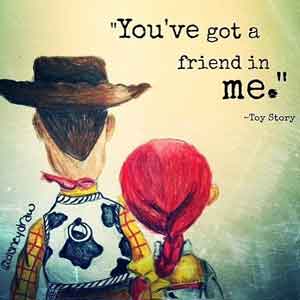
Those two do everything together, don’t they? They are in the same class, the same club, and they work at the same place. I think they even drive to school together! They are surely joined at the hip!
This phrase means to be inseparable. It sometimes is used for romantic partners, but it can be used for friends as well. When people do everything thing together, they are said to be joined at the hip.
This is usually used for activities rather than emotional connections.

We’ve been friends for so long, we know each other inside and out! Even more amazing, we are still friends!
This means to know someone very well.
We all want to be seen and to be accepted for who we are with all the dark and light bits of us.
This aspect of friendship is one that takes time to develop. Having someone who knows and accepts you deeply and completely, inside and out, is a rare and wonderful kind of friendship.
We have seen, just in this one short blog, various levels of friendship from the general asking for help from strangers to the deeper knowledge of intimate friends. I think one of the keys to successful friendship in the United States is to accept all these various levels. In other countries, from what I’ve learned from both my own reading and my students’ stories, friendships seem to be deeper and last longer. We have those too here, but they are more rare and precious. Much more common are the casual fleeting types of friendship, especially in college. Nevertheless, these friendships have their benefit too!
 Pursuing every level of friendship is a worthwhile endeavor.
Pursuing every level of friendship is a worthwhile endeavor.

I was reading one of my favorite science fiction novels, Dune, over the holiday weekend. I love how each time you come to a beloved, well-read story you can still find new treasure nuggets within. Despite taking place in a fantasy universe with sand worms and spice, the story, like all great stories, is one of the humanity’s struggles against inside and outside forces, and one that we can learn and grow from in our own lives. At the beginning of the book, as Lady Jessica is embarking on changes within and without her family that will change her world and ultimately the entire universe, she has an exchange with a previous mentor.

[embedyt] https://www.youtube.com/watch?v=HuS5NuXRb5Y[/embedyt]
All the lonely people
Where do they all come from?
All the lonely people
Where do they all belong?
Advice for overcoming loneliness abounds on the internet. As I exercised my Google-fu, I found countless articles for dealing with loneliness, everything from the practical make a plan and get out of the house to the metaphysical commune with higher beings.
Nonetheless, today’s blog is not a primer for overcoming loneliness. I am certainly not an expert on the subject as just like most people I too struggle with these feelings on a regular basis. Instead, this blog’s purpose is to open the door to the discussion of loneliness, of feeling alone, and of feeling isolated from others. The first step, in my very un-expert opinion, to dealing with a subject is bringing it to the light and giving it words.
And words, words are what I do; language is what I can offer to the world. So, my small attempt to help with the loneliness of life begins with language: specifically idiomatic ways to discuss it. Thus, this topic of rather forlorn language is an important one of exploration to give people various ways to express what they may already be feeling.
Proverb:
LAUGH AND THE WORLD LAUGHS WITH YOU; WEEP AND YOU WEEP ALONE.
This is an English proverb, a bit of cultural wisdom that basically suggests that in times of sadness or difficulty, you are most often alone. I don’t necessarily agree with it in that it is possible to develop deep relationships with people willing to stand with you through the tears; however, I do agree that for the masses of people, the casual acquaintances that for so many of us do make up the world, they probably will not stick around for the crying.
Proverb:
MAN DOES NOT LIVE BY BREAD ALONE.
This is an English proverb suggesting that people need to have more than just their physical needs met in order to find fulfillment. We also have emotional, psychological, spiritual and even creative needs as well. The more of these needs that we are able to fulfill, the more satisfactory lives we can achieve.
Idiom:
GO IT ALONE
This means to do something on one’s own, often in a way usually accomplished by pairs or teams. Sometimes, this phrase is said in frustration or anger at a situation.
For example:
I don’t need anyone’s help with this project! I’m going to go it alone!
Idiom:
LEAVE WELL ENOUGH ALONE
This means to stop attempting to do something; there are many idioms for this kind of sentiment such as “if it’s not broke, don’t fix it,” “don’t rock the boat,” and “don’t upset the apple cart.” They all mean the same basic thing here.
For example:
She seems quite happy in that relationship, so why does she keep arguing with her boyfriend about his job? She should just leave well enough alone.
Idiom:
DOWN IN THE DUMPS
One of the places Americans put their trash is called “the dump,” so perhaps a meaning of this phrase could be feeling down where the trash is put, or the bottom of the bottom where everything that is rejected goes.
For example:
After fighting with her good friend last night about meaningless issues, she really felt down in the dumps.
Idiom:
GO OFF THE DEEP END
This phrase relates to an emotional outburst or breakdown, usually one of anger or depression. It is often applied to someone’s actions or words.
For example:
She cut up all his clothes and burned all his pictures when they broke up. She really went off the deep end, didn’t she?
Idiom:
FEELING THE BLUES
To be blue is to be sad. There is an entire soulful genre of music called the Blues whose verses and rhymes examine the injustices and difficulties of life but also the joys within as well. I personally love the Blues and have several artists that I listen to. I have recently discovered this one, Janiva Magness, who I am totally in love with and currently listening to all her youtube videos. Here is one of my favorites, “You Were Never Mine.”
[embedyt] https://www.youtube.com/watch?v=CK1RgJzMgwc[/embedyt]

Like so many in Southern California, my lifestyle would be impossible without a car. I love my MX5 Miata convertible. It gives me joy at the end of a difficult day as I speed down the road with the top down and music up. I can park easily amongst giant SUVs who think they are compact cars. With a bigger car, I tend to fill up the space but its tiny trunk forces me to clean it out as I am limited to 7 bags of groceries, 4 sweaters, 2 hats, 1 extra pair of shoes, a bag of blankets for Under the Tree, and a small box of extra Editing Academic Texts to sell. Note that the blankets and box don’t fit at the same time as the groceries! And perhaps most importantly, I can almost always find it in the parking lot without having to take pictures on my phone for a location reminder. What a great car!
As much as I love my car, I don’t love washing it. You wash it, make it shine, and then boom! Bird boop, or rain or road dust or leaves or whatever so what’s the point? Nonetheless, a new semester is starting, and I like everything to be clean and new, so today, with Mr. C’s help, I set out to wash the car. As I spent 1 and 1 ½ hours scrubbing, vacuuming, wiping, and polishing under Mr. C’s guidelines, I was struck by how much washing a car resembles writing well, and so, without further ado, here are 10 writing lessons that can be had from washing one’s car.

LESSON #1: THERE ARE DIFFERENT LEVELS OF WASHING.
Cars can be washed through the gas station drive through or hand detailed down to the paint. Different situations require different levels of washing. There will not always be tons of time to break out the special tire brush for the rims to shine up the wheels for that special date; sometimes you just want to knock the dirt off on a Wednesday afternoon. You have to know the difference between the kind of washes and choose the appropriate one.

Similarly, there are different kinds of Writing Tasks. When shooting a text to a friend, typos and spelling mistakes are expected. When texting a friend last night about his work schedule, I quickly typed “Working tonigjt?” Now, that is clearly a typo, right? I mean, tonigjt isn’t a word in English or any other language that I’m aware of. Regardless, he could read it and didn’t correct my grammar! Good thing! So informal writing has its own requirements.
In contrast, in a formal essay for my class, that error would be significant as it shows either speed without care or lack of knowledge. Neither one of these are outcomes are good in a graded assignment, right? When you are completing a formal writing assignment over several weeks, you want to take the time needed to produce an awesome essay, much like the car when I drove it over to 7-11 to get gas and a total stranger whistled and said, “Whoa, nice ride!” Yes, it is and so should your essay be as well!

LESSON #2: TIMING MATTERS.
Did you know that dirt is not only ugly, it actually harms the paint? Do you know what else is ugly and harmful? Water spots. Yep, washing the car and leaving it spotty is not much better than leaving it dirty in the first place. Thus, when you wash matters as that big ole’ sun will bake the water on before you can get it dry. So, you must plan and time your washing carefully as to not simply be wasting time.

In the same way, timing matters with writing. If you plan out your schedule, give yourself time to think, to write, to edit, and even to take a break before it’s due, then you can have a quality product. But, if you slap something together at the last-minute without care or concern… it might just end up to be a spotty mess!

Mr. C is all about the correct tool for the job; as such, there are brushes for tires (3 different kinds!), hand brushes, power washer brushes (yes, we have a power washer), inside towels, outside towels, drying towels, car cleaner, car wax, tire cleaner, tire wax, detailing stuff, window stuff, and that’s just what we used today. Who knows what else lives in his man cave. I only go in when invited.
Though it seems like a ton of tools for one littl’ car, wow, does it make a difference in speed and overall result. A tire brush, for example, has to be rather firm to get all the brake dust off, but if used on the paint, ooooh, that would be really bad as it would take the paint right off. An outside towel has a different composition than an inside glass cleaning towel which leaves no streaks. Who knew?

Likewise, there are so many writing tools that can make one’s job more efficient and quick. A dictionary has different functions than a thesaurus. Editing hard copy can be better than Soft Copy. Spell check and Grammarly can save tons of time. The lesson from this is two-fold.
First, use the best tool for the job. And second, if you don’t know the appropriate tool, then find someone who does and ask. Your instructor, your tutor, blogs online or some other source- all of these people know some good tools, just like Mr. C who truly does know the difference between inside and outside towels that to me look exactly alike (same color, same shape, same feel- but oh sooooooo different!).

4. SOME TECHNIQUES ARE MORE EFFECTIVE THAN OTHERS.
Washing a car seems pretty straightforward, right? Wet, soap, rinse, dry off. How tough can that be? Well, apparently, it is so much more than it seems. If you get the whole thing wet and take too long to soap, it dries off. If you soap it carelessly, you can scratch it with your jewelry (a fact I found out the hard way). If you rinse it the wrong way, then the soap gets the rinsed part soapy again. Apparently, front to back top to bottom is the way to go. If you dry in correctly, you leave spots or worse, make it dirty again! Then you have to wash it all over which is a serious pain in the you- know- where! Whew, washing a car is tough!

Even more difficult than washing a car is writing college level English! However, just like washing a car, some writing techniques may be more productive than others! If you are fortunate to be in a college class, then your Professor will give you some new techniques to try! Don’t be afraid to try them just because they are new or time-consuming. You will find that even though things may take longer in the beginning, by the end, they will save you tons of time.
For example, I have my students brainstorm with a specific technique; they have to create a topic sentence outline for their essay before they begin writing it. Oh, how they resist this technique! Yet, by the end of the essay, or sometimes the semester, they see how much time they saved by starting out organized and finishing well. Not all techniques are the most effective. Find the ones that are!

When start rinsing off the suds, there’s a lot of water. Remember, you are outracing the sun here (#2)! One effective technique to start drying is to take her for a spin around the block. But maybe you are in a hurry( or completely soaked from poor washing technique like me!). So when you take out the special drying towels with the “wax as you go” stuff (#3) and start drying at the top of the car (#4), you may find that there is too much water to wipe off in one pass (#4 again!). The key though is getting most of it off so that again you have no water spots. Then, after the whole car is mostly water free, then you go back and wipe again. That is when you make sure you got all the wax stuff, it has no streaks, and all the water is gone. You could call that a re-wipe if you like.

Like washing a car, the more passes one gives a paper, the better the final product. Revision is taking a re-wipe or revision to the content and structure of the paper. Are the ideas clear, you may ask. Do my examples really prove my points? Are my core sentences (topic sentences) reflective of the main idea (thesis)? Then with a new towel, you have to go again and look at the grammar, the nitty gritty sentence level, and word level issues. Ask yourself about your verbs, your punctuation, your vocabulary. Now, finally, done, right?
Weeeeellll, no, not if you want a fabulous product. The final pass should be checking the details in your format. Is your MLA header correct? Did you spell the Prof’s name correct? Is your title ok? How about the margins? Did you meet the page length? All these passes will lead to a nicer paper!

Still, you aren’t done with the car if you want a truly spectacular result. Now comes the detailing, the precision work that separates this job from the drive through quickie wash and even the drop of someone else watch. Here is where the magic really happens.
Really good detailing occurs on both the outside and the inside (#1). Of course, you need new tools (#3), and there are special techniques (#4). For this example, I’m just focusing on the inside detailing. It is time-consuming. Oh, and order matters. Apparently, you vacuum the car before you wash it. Why? I didn’t ask but left it to the mystery of the process. Sometimes, you gotta go with the flow. So, you need another special towel, inside detailing towel and another special bottle of the misty stuff. And there is absolutely an order – all the leather, but no shiny stuffy or glass. Those need another special towel and misty stuff. If you are a mess living in your car like me, you need yet another towel and misty stuff for all the sticky coffee tea spills in the cup holders. Wipe, polish, polish wipe. Whew. Pretty!

Similar to the process of washing a car, some techniques are better in different aspects of writing.
Focusing and Isolation are particularly good for the detailed look required at sentence level grammar. Reading Aloud is a big gun not used every day, but particularly useful in certain situations. With a quick write or a quick edit, you may have a passing paper, but if you strive for the excellence of an A, then you need to learn all the tricks of polishing your paper to make it shine! More information about the editing strategies and how to employ them are in my book Eating Academic Texts.

Not only does having a clean, shiny polished car, make the owner feel good about life, the car likes it too. If you let dirt and stuff build up on the paint, it does more damage. If you wash it regularly, you can assess the state of the car better. For example, on the driver side door, paint is coming off from the weather stripping, because, uh hmm, maybe I park too close to other cars sometimes and gently, very gently rest my door on their cars when getting out. If we (and by we I mean Mr. C) touch up this paint with again special stuff, we will save money by not having to replace the very expensive entire door seal. Also, I can modify my behavior and try harder to park more carefully. This is just one example of many possible benefits to routine maintenance.

Cars clearly benefit from routine maintenance, but what about one’s own writing skill? How does one have a solid everyday writing skill? By writing of course. By writing on a regular basis, by reading, and by learning vocabulary.
If you do these things, like routine car patience, your basis line writing skill goes up. Just like a car will be less damaged when cleaned more often, your writing will start out at a higher level the more routine practice you give it. If you want to save time and have a better level of writing, practice in small spurts every day rather than marathon sessions when papers are due. Because just like the dirt that continues to build up on the car, you will continue to need to write over and over and over again. Starting from step one will cost you much more time and effort in the long run!

Honestly, I don’t usually wash my own car. Almost never. I think the last time I was involved in this was 2015. I drop it off at the wash place or drive through the car wash or grade papers while Mr. C washes it while he washes mine. The people I pay to wash it do a good job. It is their job after all. Mr. C does a great job. He takes pride in a clean car, and we drive mine on the weekend because who doesn’t love a convertible in Southern California? But I, I love my car. As I lovingly cleaned up that sticky spot that was deep in the cup holder, as I noticed my poor door opening/parking damage to the weather stripping, as I polished the mirror,and as I glanced at my reflection in the super shiny rims, I remembered the pure pleasure I take in having this car, driving this car, loving this car. At the end of the day, it is mine all mine, and I love it!

Just as you can with your car, you can get help with your writing, but you must own your work. We encourage group work in America; we also provide tons of support services in schools like the Language Acquisition Center where I work or the Tutoring Center. You can also hire private tutors too! You can share ideas with classmates and study together. All of these activities help you.
However, at the end of the day, when the rubber hits the road, the work is yours and no one else will ever care about it as much as you. Students come to me in the LAC and expect me to do a line by line edit on their work. Ha! No one will ever do that for you or for me for that matter! Students want me to talk about every single verb. Yeah, never gonna happen folks. You have to be in charge of your work. Getting help is fine, but who is going to cook an entire yummy dinner for you and then watch you eat it without getting any? No one. Own your work. It is a result of your effort. Be proud of it.

However, I don’t love washing it. I don’t find fun all the rules for good car washing. It’s so complicated. I don’t participate in the process enough to really know the steps. All the towels look alike to me. The brushes are a mystery. And don’t even get me started on the power washer. Seriously, that thing is rather scary. Not. Fun.
But the result, that is fabulous. The car sits in the driveway, happy and clean. I took it to the grocery store (note to self- take out Under the Tree blankets next time- it was a near thing getting the bags in the trunk!), and two different strangers talked to me about the car (going in and going out of the store). The guy picking up the karts in the lot gave me a high-five. Having a clean car gets me a conversation and good feelings. Who wouldn’t want that? Plus, I feel very industrious and responsible for washing my own car. Win-win!

In no area of our lives will fun always be happening 24-7. So many of my students expect writing to be one great party! Entertain us, they exclaim. We don’t like grammar because it’s boring. If you get down to it, so is the mechanics of eating or sleeping or breathing. Every minute of every day or every activity will never be a fun feast unless maybe you are five years old. Adults, however, must slog through the mundane activities to get the results they want.
Is brainstorming and blocking out ideas for writing fun? Sometimes. Was completely restructuring the Editing Academic Texts book 5 times fun? Not so much. Is checking my grammar fun? Sometimes. Is doing a tight edit looking at every single comma in a paper fun? Not so much.
Yet the results of all that effort makes it all worth it! Looking out over a class of students using my new book and learning how to edit better, yes, that is super duper fantastic!
In car washing and writing, fun can happen, but it shouldn’t be the only thing we look for!

I don’t know when I’ll wash the car again. But when I do, I will still need all that stuff from this time. Luckily, Mr. C believes in “a place for everything and everything in its place,” which is kind of a hassle when I’m tired of the sun and wet and just want to be done with the washing but will be fantastic next time we do it. Because the towels all have their own drawer. Now I know, if I remember, where they live. The inside towels and the outside towels are in different piles. Ahh, that’s how one tells. The brushes and bucket are cleaned and stored neatly. The power washer is wiped down and put away. If for some crazy reason, GASP, I wanted to ever do this on my own in the future, it would be possible.

Writing, like washing a car, is not a one-off activity. In all of our classes and in many areas of life, we have to write again and again. In my own writing classes, as well as most instructors, all the assignments build upon another. If students simply pay attention to the end of the work, the beginning of the next is rather easy since it is some kind of continuation. Yet. It seems that for every single assignment in class, the students are starting over from the very beginning! Why?
I think they are just leaving their writing utensils and tools scattered all over the yard rather than putting them away neatly. Their files are a mess. Their binders are unorganized. They can’t find previous handouts. But, what if?
What if we took the time to organize the completion of our assignments getting ready for the next time whether it is this class or another? What if we started out with clean towels and the misty stuff was back where it belonged in the garage? What if the computer files were named clearly and the handouts were in order in our binders? Wouldn’t that be soooooo much easier next time? And wouldn’t I then need less help to get started, which would build my confidence and help perform even better in my writing and grammar? I think so!
Writing is hard. Few, if anyone, would argue this point. But there is hard, and there is crazy-making hard. With some care, by learning some lessons from the real life activity of washing a car, we can all reduce the stress and anxiety of writing and maybe make it just that much easier. Then, we can become better writers! That is my goal for sure! How about you?

As I prepare for the beginning of a new semester, I’m excited and a bit overwhelmed. As usual, I am attempting to accomplish more than is humanly possible by one small dedicated teacher. I do this every time despite promising Mr. C, my cat, my friends, and myself that it won’t happen again! That said, I’m going to have to reduce the frequency of the language blogs as I just can’t manage the once a week goal I had set on top of teaching, writing, taking classes, and trying to have some semblance of a balanced life. For the rest of 2017, I will be blogging only every other week. If ideas or inspiration strike, I might add a bonus blog or two.
This week’s blog examines some great idioms for finishing something, the summer, and getting back to school. These are all currently used English idioms, so you can learn them and use them confidently in your own speech.
The idioms will be introduced first and then used in context.
I hope you learn something and enjoy the language!

This is used to express an ending. It can be a positive ending, but more often used to express the sadness that something is finished. Breakup songs like the one by Boyz II Men often use this phrase as well.
[embedyt] https://www.youtube.com/watch?v=zDKO6XYXioc[/embedyt]

I love this sports game idiom. It refers to the end of a game when one team is so far ahead of the other that there is no possible way the losing team could win, but they game still has to be played to the end. It can be used for any situation that is “finished” but still goes on until the time is up.
This idiom is rather obvious to indicate that there are really no limits. It can be used when discussing most any kind of achievement.


Sow is a great verb not used much in urban environments and has to do with planting. It is pronounced just like so and sew. Don’t you just love English! It can be used to plant anything and watch it grow. Sow seed collocates better to plant seeds.
While sometimes we all may feel frustrated and actually want to slug or physically hit, this idiom is more about hitting with the brain. To hit the books means to open them up and study. It is usually used to express intense, not necessarily fun or easy study.


This idiom is fairly straightforward. How does one come up with an idea? Put on a “thinking cap!” It is a fun, positive idiom used to express trying to come up with ideas.
The first thing English speaking children learn is numbers and letters; thus, 123 and abc are simple basic building blocks for knowledge and relatively easy to learn. There are songs about this too.


I love the ocean and being on boats, so sailing idioms are in my wheel house (another boat idiom that means tool box or things I can do). On a boat, especially a sailboat, ropes are very important for navigation and braking, so to sail successfully, you must know your ropes. This is another positive idiom that can be applied to most any topic.
When the seas are calm, the sun is bright, and there’s just enough wind, then sailing is awesome! However, with a bit of storm, chaos can ensue. This idiom refers to situations that are all going well with no problems and again, can be applied to most all life circumstances.

Summer has come to the end of the road, and basically, it’s all over but the shouting. My summer class finished on a high note. My entire class passed, save the one person who quit coming. Clearly, when students put their minds to it, the sky’s the limit to their success. Despite the difficulty of studying at a college level in another language, by sowing the seeds of diligent effort and deliberate application of ideas, writing and language improvement is possible, even in 10 weeks!
Fall semester starts for me next week, so it’s time for us to hit the books again and get those thinking caps on! ESL 201 at IVC is not as easy as 123 or ABC. It is a difficult intensive class that covers a lot of ground with multiple books and essays and assignments and activities. Nonetheless, I have every confidence that my students will quickly learn the ropes of my class and have smooth sailing before they know it!

 The Freedom of the Press
The Freedom of the Press
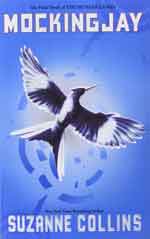
 to be struck by an idea is an idiomatic phrase loosely based on the idea of being struck by lightening. Like a bolt of lightening out of the sky, which is forceful and rather violent, to be struck by an idea has the same kind of feeling where a strong or sudden idea hits your mind. For example, as she read the novel, she was struck by the idea that this was more than fiction because she could similarities in her own modern world.
to be struck by an idea is an idiomatic phrase loosely based on the idea of being struck by lightening. Like a bolt of lightening out of the sky, which is forceful and rather violent, to be struck by an idea has the same kind of feeling where a strong or sudden idea hits your mind. For example, as she read the novel, she was struck by the idea that this was more than fiction because she could similarities in her own modern world.

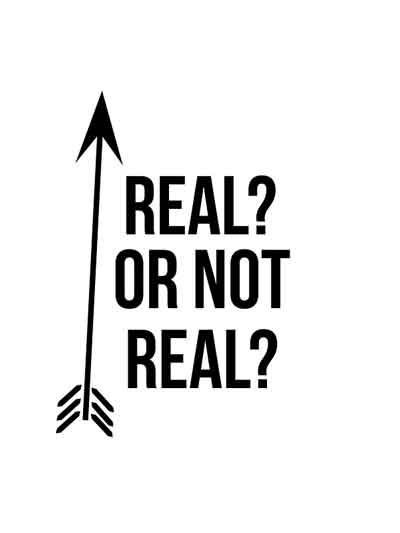
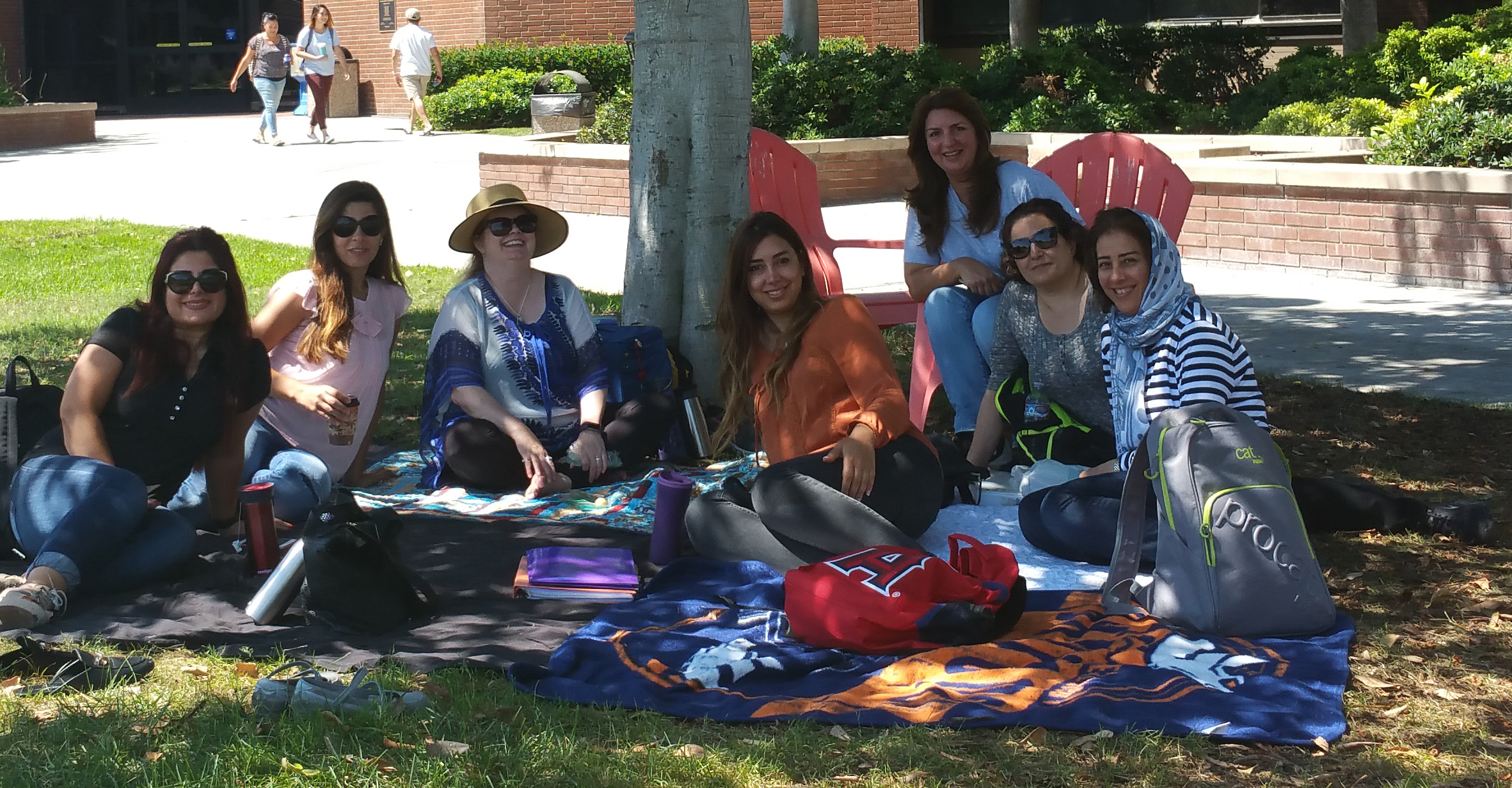
I love this song.
This week I had the wonderful opportunity (as usual with my awesome job!) to talk with humans from various linguistic and cultural backgrounds, Chinese, Korean, Brazilian, Syrian, Iranian, Afghan, Egyptian, Japanese, Vietnamese, and even American. I spoke with the motivated, optimistic, driven and grateful as well as the disheartened, jaded, indolent, and entitled. I made people laugh, and I made people cry. I learned from teachers and students, mothers and fathers, engineers and artists, friends and enemies, and too many more to list. Together we all makeup humanity.
This song is about being human, about the actions we take both good and bad. What if we accentuated the good and diminished the bad? Just how much might we accomplish in the world?
Here are a few of the idiomatic phrases in the song “Human” by Christina Perri. Most of these phrases are used every day in American speech and writing.

Idiomatically means to wait or delay until something happens.
For example:
He’s been applying for jobs all over town while holding his breath that someone will call.
Also it’s often used in negative advice to tell someone to give up the idea.
As in the following conversation:
Student 1: I think I’ll get into the morning class this fall.
Student 2: Don’t hold your breath! You’re number 24 on the waitlist!

Idiomatically both mean to NOT say the negative words you are thinking
For example:
When she told me she didn’t like my new logo, I really had to bite my tongue! Who asked her anyway?
Also, it is often used in advice to tell someone to be quiet.
As in the following conversation:
Student 1: I want to go home early today, so when Mrs. C asks the class questions, just hold your tongue, alright?
Student 2: Got it!


Idiomatically , both mean to smile without the feeling of happiness behind it often for manipulative or deceptive purposes.
For example:
Did you see that fake smile she gave you? I mean really, doesn’t she know that you know what she said about you to the instructor?
Idiomatically, it means to give an unnatural laugh to cover up other emotions or used out of politeness for someone else’s not funny information.
For example:
I forced myself to laugh at his comment, but left as soon as I could.


In theater, actors take on roles or characters for a purpose. We do the same thing in life. Idiomatically, it means whether for good or bad reasons, to act in an expected behavioral role.
For example:
A newly graduated linguistic student might not feel like a teacher yet, but when she walks into the classroom, she plays the part of the instructor. She will fake it until she makes it.
An ESL student might not feel comfortable in conversations with native English speaking classmates, but he can play the part or act as if he is until it becomes a reality.
Idiomatically, it means to fail spectacularly
For example:
I just finished my first book in the GramEd series. It’s the biggest thing I’ve done to date. I hope it doesn’t crash and burn.

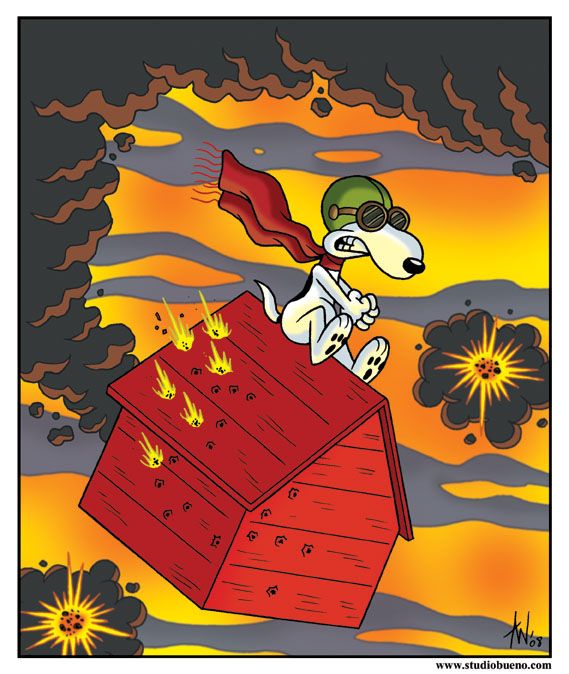
Idiomatically, used to mean to be at your best in the situation, rather like turning on a light.
For example:
So, when I’m in the classroom, I turn my energy on, my language knowledge on, my compassion on, etc. Even if I don’t feel like being there that day, I turn it on.


Idiomatically, it means to be robotic, to do the job at hand without emotions getting in the way
For example:
When I have to talk to a student who plagiarized in an essay, I have to be a good teaching machine. I can’t be swayed by their excuses or tears.

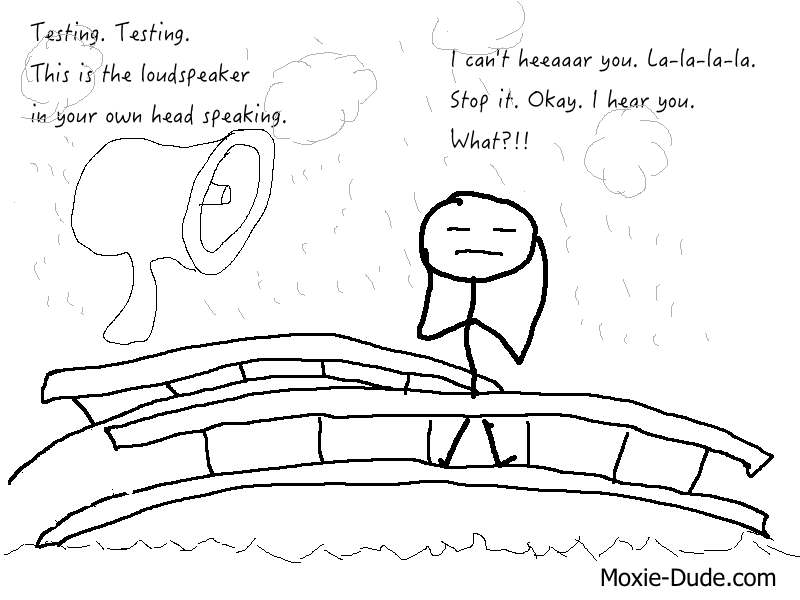
Idiomatically, a negative meaning is usually literal: an auditory imaginative “voice” in one’s head with negative thoughts, which is often used to refer to schizophrenic people’s symptoms.
Idiomatically, it can be positive as in one’s one thoughts or ideas driving to success. The voices in our heads can be our own, or they can be others motivating ideas.
For example:
when I first started teaching, I spent a great deal of time with mentor teachers. Their words and wisdom became the voices or words in my head during tough classroom situations. Now, I have been teaching for a while, so I have my own success and failures. Now, I can talk myself through problems. I am my own voice in my head.

Idiomatically, it means when a person is weighed down by obligations or responsibilities, he or she feels as his or her actions carry the future of the world.
For example:
International students with their families expectations, cultural adjustments, and scholastic demands often carry the weight of the world on their shoulders.
Idiomatically, it means a deep emotional wound because of a betrayal or deep hurt caused by another’s words or actions.
For example:
Nothing I did reached my failing student, and after flunking the level for the third time, she had to leave school. When that she told me I was the worst teacher she’d ever encountered and I should give up the profession, it was a knife in my heart.


Idiomatically, both these phrases mean things aren’t going well.
For example:
Yesterday the wheels really fell off the bus! I couldn’t find my keys, so I was late leaving the house, there was an accident on the freeway, the air conditioner in the classroom wasn’t working, and half of the class didn’t bring their books! I fell apart and sent them all on break early!